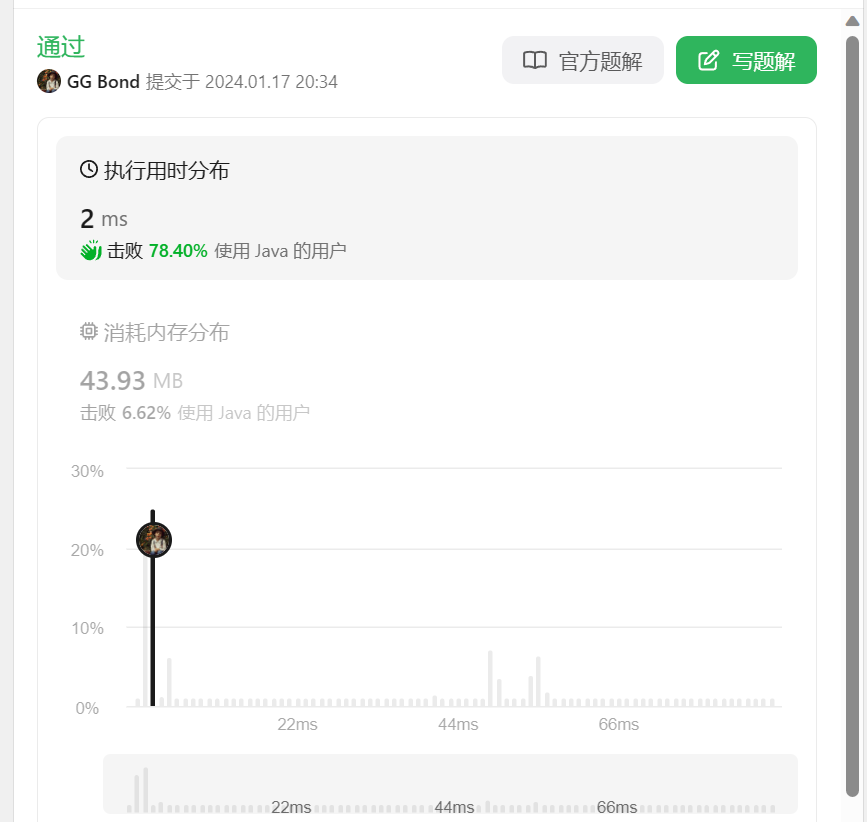Java数据结构实现数组(配套习题)
发布时间:2024年01月17日
数据结构
数组
- 一组相同数据类型的集合
特点
- 数组在内存中是连续分配的
- 创建时要指明数组的大小
数组名代表首地址,索引从0开始,到数组的长度-1- 数组一旦创建好,大小不可以改变
- 使用索引
- 获取索引位置的值
arr[index] - 修改
arr[index] = val - 删除 (假删除)
- 遍历,将数组中的元素,依次打印出来
- 获取索引位置的值
使用Java实现更高级的数组
package Arrays;
import java.util.Random;
public class MyArr<T> {
private int capacity = 0;
private int size = 0;
private T[] arr;
public MyArr(int capacity) {
if (capacity < 0) this.capacity = 10; //if no right input, we will initial capacity 10
this.capacity = capacity;
this.arr = (T[]) new Object[capacity];
}
public int getCapacity() {
return capacity;
}
public int getSize() {
return size;
}
public T[] setCapacity(int capacity) {
if (capacity < 0) {
throw new RuntimeException("扩大小异常");
}
this.capacity = capacity;
T[] newNum = (T[]) new Object[capacity];
for (int i = 0; i < this.size; ++i) {
newNum[i] = this.arr[i];
}
return newNum;
}
//增加元素
public void add(T val) {
if (this.size >= this.capacity) {
this.arr = setCapacity(2 * this.capacity);
}
this.arr[this.size++] = val;
}
//删除元素
public boolean removeByIndex(int index) {
if (index < 0 || index > this.capacity) {
throw new RuntimeException("数组越界");
}
for (int i = index; i < size - 1; ++i) {
arr[i] = arr[i + 1];
}
size--;
if (size < this.capacity / 4 && this.capacity > 4) {
arr = setCapacity(this.capacity / 4);
}
return true;
}
//修改位置元素
public void modify(int index, T val) {
if (index < 0 || index > size - 1) {
throw new RuntimeException("数组越界");
}
arr[index] = val;
}
//获取某元素位置
public int locateVal(T val) {
for (int i = 0; i < size; ++i) {
if (arr[i] == val) {
return i;//return index
}
}
// if no find return -1
return -1;
}
//打印元素
@Override
public String toString() {
StringBuffer stringBuffer = new StringBuffer();
stringBuffer.append('[');
for (int i = 0; i < this.size - 1; ++i) {
stringBuffer.append(arr[i] + ",");
}
if(size>0) stringBuffer.append(arr[size - 1]);
stringBuffer.append(']');
return stringBuffer.toString();
}
}
对应习题
26. 删除有序数组中的重复项
class Solution {
public int removeDuplicates(int[] nums) {
/* TreeSet<Integer> set = new TreeSet<>();
for(int i=0;i<nums.length;i++){
set.add(nums[i]);
}
Iterator<Integer> iterator = set.iterator();
int temp=0;
while(iterator.hasNext()){
nums[temp] = iterator.next();
temp++;
}
return set.size();
*/
//使用双指针,优化
/*
int p=0;
int q = 1;
if(nums==null||nums.length==0)return 0;
while(q<nums.length){
if(nums[p]!=nums[q]){
nums[p+1]=nums[q];
p++;
}
q++;
}
return p+1;
*/
//当数组根本不存在重复元素时,则上面的方法每次依然会进行重复的复制,显然这是没有必要的
//再次优化
int p=0;
int q = 1;
if(nums==null||nums.length==0)return 0;
while(q<nums.length){
if(nums[p]!=nums[q]){
if(q-p>1)nums[p+1]=nums[q];//判断
p++;
}
q++;
}
return p+1;
}
}

1. 两数之和
class Solution {
public int[] twoSum(int[] nums, int target) {
int[] numsSum = new int[2];
HashMap<Integer,Integer> hashMap = new HashMap<>();
for(int i=0;i<nums.length;++i){
if(hashMap.containsKey(target - nums[i])){
return new int[]{i, hashMap.get(target - nums[i])};
}
hashMap.put(nums[i],i);
}
return null;
// int[] numsSum = new int[2];
// if(nums==null||nums.length<2)return numsSum;
// int len = nums.length;
// HashMap<Integer,Integer> hashMap = new HashMap<>();
// for(int i=0;i<nums.length;++i){
// hashMap.put(nums[i],i);
// }
// int temp=0;
// for(int i=0;i<nums.length;++i){
// temp = target - nums[i];
// if(hashMap.containsKey(temp)&&hashMap.get(temp)!=i){
// numsSum = new int[]{i, hashMap.get(temp)};
// }
// }
// return numsSum;
}
}

class Solution:
def twoSum(self, nums: List[int], target: int) -> List[int]:
lens = len(nums)
dic_num = {}
for i in range(0,lens):
if(target-nums[i]) in dic_num:
return [i,dic_num.get(target-nums[i])]
dic_num[nums[i]] = i
return []
文章来源:https://blog.csdn.net/weixin_75111785/article/details/135660061
本文来自互联网用户投稿,该文观点仅代表作者本人,不代表本站立场。本站仅提供信息存储空间服务,不拥有所有权,不承担相关法律责任。 如若内容造成侵权/违法违规/事实不符,请联系我的编程经验分享网邮箱:chenni525@qq.com进行投诉反馈,一经查实,立即删除!
本文来自互联网用户投稿,该文观点仅代表作者本人,不代表本站立场。本站仅提供信息存储空间服务,不拥有所有权,不承担相关法律责任。 如若内容造成侵权/违法违规/事实不符,请联系我的编程经验分享网邮箱:chenni525@qq.com进行投诉反馈,一经查实,立即删除!
最新文章
- Python教程
- 深入理解 MySQL 中的 HAVING 关键字和聚合函数
- Qt之QChar编码(1)
- MyBatis入门基础篇
- 用Python脚本实现FFmpeg批量转换
- Selenium自动化测试框架详细教程
- 52、Flink的应用程序参数处理-ParameterTool介绍及使用示例
- finalshell连接linux的kali系统
- 达梦数据库应用操作建议指导
- 黑客利用Orbit Chain跨链桥后,竟让其损失超8000万美元。
- canvas设置渐变色文字(线性、径向)
- 2024最新阿里云服务器地域(城市)对照表
- 【Leetcode】计算器
- 数据隐私治理所面临的四大挑战
- NTFS 磁盘管理器---NTFS Disk by Omi NTFS中文